After speaking with Ian of Northhouse farms, one sentence stands out as the definition of his nature and character: “If something new works, I would rather be the one to start it, than come in after everyone else has already adopted it.”
Ian is referring to the latest decision on the farm to begin breeding the predominantly Cheviot ewes with Aberfield tups. However, it is not the first time Ian has attempted to stay ahead of the curve in all aspects of his various farming enterprises.
Ian along with his wife, Katherine, sons, John and Gregor, and brother, Tommy, both own and manage four farms across the Scottish Borders region. Well known in the wider farming community, owning to the fact they hosted the 2008 Scotsheep event, the Hepburns can count sheep and cattle farming, agri-contracting and woodchip production among their various enterprises.
Keeping busy
Managing four farms as well as a thriving machinery contracting business is no mean feat, and as Ian modestly says: “There is plenty to do and I suppose you could say it keeps us busy.”
Ian and Katherine are mainly involved on the sheep side of the business. The farm runs a combination of North and South Country Cheviots, Cheviot mules, recently Cheviot-Aberfield crosses and a small pedigree Suffolk flock.
Stretching back to 2001 the farm ran all South County Cheviots, but following a mandatory cull imposed on the area during the foot and mouth epidemic, it was forced to completely restock. Ian decided to use this as an opportunity to take the farm in a different direction.
“I’d previously lived and worked in the north of Scotland for nine years and, along with meeting my wife there, I got to travel and see a lot of the different flocks. After foot and mouth wiping out so many South County flocks, there was a huge demand for them and a serious scarcity of replacements,” Ian explains. “I’d seen the North Counties and I really liked what I saw, so I decided to bring them in.”
For Ian, the North County Cheviots had the advantage of a higher lambing percentage and were better suited to his lowland areas, while he also retained a number of South County Cheviots to fully utilise his higher areas.
The move to introduce Aberfield genetics into the flock was made to breed a ewe with a similar size to the farms’ traditional Cheviot mule cross, but with an improved shape and ability to maintain condition. Having recently sold 150 ewe lambs, Ian has been happy with the move’s success so far.
“The farm that they’re stocked on is one we recently purchased from the Duke of Buccleuch and it has a lot of old grass on it. The ewes though seem to be doing very well and there’s been no compromise on the finished lambs either,” Ian says.
There has also been huge demand for the replacement stock he is selling, with demand exceeding supply: “The real test of the new cross will be if people come back for more next year, which hopefully they will.”
Maintaining a legacy
The Hepburn family was struck by tragedy when Adam, Ian and Katherine’s son, died in a tragic accident in 2013. Adam had been the main driving force behind the farm, undertaking a 3,500-acre neighbouring farm on a contract-management basis. He had been heavily involved in the family business and was very passionate about the farm.
As part of maintaining Adam’s legacy, and to ensure a bright future for his son and John’s daughter, the Hepburns have continued to contract-manage the farm, as well as raising a pedigree Charolais cattle herd that Adam helped establish.
All farms the Hepburns own have always been hugely influenced by all members of the family. Ian’s brother, Tommy, manages the home farm at Crosscleuch, which consists of 1,000 acres and has been in the family since 1957. Ian’s oldest son, John, is mainly responsible for overseeing the contracting business and care of the cattle. The contracting business within itself is hugely varied, with the Hepburns involved in muck spreading, round and square baling (both silage and straw), as well as owning two Pottinger wagons.
The youngest son, Gregor, is a newly qualified vet, who works only an hour away and regularly finds himself assisting on the farm: “I have noticed a difference in the vet bill alright,” Ian laughs. “But it’s great having Gregor to call on, especially around lambing time, when there might be difficulties.”
In addition to the family labour, the farm also employs three full-time workers from the local area, all under the age of 25.
“The three boys we have working for us are great,” Ian says. “I’ve been able to bring them in and train them, and now they help out myself and John.”
Evolving the business
If there is one thing that is distinctly absent from the Hepburns’ mindset – that is complacency. Having gone from starting off on 1,000 acres in Crosscleuch to acquiring 1,600 acres at Northhouse, undertaking the 3,500-acre contract-managed farm, to most recently purchasing an 800-acre farm at Broadhaugh, the business is ever expanding.
“Given Broadhaugh hasn’t had a permanent tenant in over four years,” Ian explains, “there’s plenty of work to be done fixing it up, but we’re ready for the challenge. It complements our current farm quite nicely, so it has no problem integrating with our current business.”
Outside of the livestock end of things, for the last two years the farm has operated a biomass burner and making woodchip for both private use and to sell on.
Ultimately, any farm or business can be judged based on outsiders’ dealings with it and Northhouse again comes out quite favourably in that respect. With much of Ian’s stock being sold as replacements to other farms, the farm has a reputation for breeding and raising high-quality stock.
This high-quality stock was one of the main drivers behind the farms’ selection for the Scotsheep event and it is clear that Ian and the Hepburns are striving to grow that reputation further into the future.
Fact box
Name: Ian, Katherine, Tommy, John and Gregor Hepburn.Address: Northhouse Farms, Hawick.Area: Scottish Borders.Land type: 6,900 acres, mainly hilly/upland.System: Over 5,000 ewes and over 200 sucklers, with small pedigree herds in each system.Buys bulls and tups: Majority bred from within the herd.Sells livestock: Replacement stock sold privately, with calves sold as forward stores aged 12-18 months and lambs live to either Longtown or St Boswells mart or to Dunbia.Contractor: Carry out all machinery work themselves, as well as running a contracting business.Most important machine: Two Pottinger wagons.Labour: Three full-time employees.Strength: Well-run family business that continually looks for the new viable venture.
After speaking with Ian of Northhouse farms, one sentence stands out as the definition of his nature and character: “If something new works, I would rather be the one to start it, than come in after everyone else has already adopted it.”
Ian is referring to the latest decision on the farm to begin breeding the predominantly Cheviot ewes with Aberfield tups. However, it is not the first time Ian has attempted to stay ahead of the curve in all aspects of his various farming enterprises.
Ian along with his wife, Katherine, sons, John and Gregor, and brother, Tommy, both own and manage four farms across the Scottish Borders region. Well known in the wider farming community, owning to the fact they hosted the 2008 Scotsheep event, the Hepburns can count sheep and cattle farming, agri-contracting and woodchip production among their various enterprises.
Keeping busy
Managing four farms as well as a thriving machinery contracting business is no mean feat, and as Ian modestly says: “There is plenty to do and I suppose you could say it keeps us busy.”
Ian and Katherine are mainly involved on the sheep side of the business. The farm runs a combination of North and South Country Cheviots, Cheviot mules, recently Cheviot-Aberfield crosses and a small pedigree Suffolk flock.
Stretching back to 2001 the farm ran all South County Cheviots, but following a mandatory cull imposed on the area during the foot and mouth epidemic, it was forced to completely restock. Ian decided to use this as an opportunity to take the farm in a different direction.
“I’d previously lived and worked in the north of Scotland for nine years and, along with meeting my wife there, I got to travel and see a lot of the different flocks. After foot and mouth wiping out so many South County flocks, there was a huge demand for them and a serious scarcity of replacements,” Ian explains. “I’d seen the North Counties and I really liked what I saw, so I decided to bring them in.”
For Ian, the North County Cheviots had the advantage of a higher lambing percentage and were better suited to his lowland areas, while he also retained a number of South County Cheviots to fully utilise his higher areas.
The move to introduce Aberfield genetics into the flock was made to breed a ewe with a similar size to the farms’ traditional Cheviot mule cross, but with an improved shape and ability to maintain condition. Having recently sold 150 ewe lambs, Ian has been happy with the move’s success so far.
“The farm that they’re stocked on is one we recently purchased from the Duke of Buccleuch and it has a lot of old grass on it. The ewes though seem to be doing very well and there’s been no compromise on the finished lambs either,” Ian says.
There has also been huge demand for the replacement stock he is selling, with demand exceeding supply: “The real test of the new cross will be if people come back for more next year, which hopefully they will.”
Maintaining a legacy
The Hepburn family was struck by tragedy when Adam, Ian and Katherine’s son, died in a tragic accident in 2013. Adam had been the main driving force behind the farm, undertaking a 3,500-acre neighbouring farm on a contract-management basis. He had been heavily involved in the family business and was very passionate about the farm.
As part of maintaining Adam’s legacy, and to ensure a bright future for his son and John’s daughter, the Hepburns have continued to contract-manage the farm, as well as raising a pedigree Charolais cattle herd that Adam helped establish.
All farms the Hepburns own have always been hugely influenced by all members of the family. Ian’s brother, Tommy, manages the home farm at Crosscleuch, which consists of 1,000 acres and has been in the family since 1957. Ian’s oldest son, John, is mainly responsible for overseeing the contracting business and care of the cattle. The contracting business within itself is hugely varied, with the Hepburns involved in muck spreading, round and square baling (both silage and straw), as well as owning two Pottinger wagons.
The youngest son, Gregor, is a newly qualified vet, who works only an hour away and regularly finds himself assisting on the farm: “I have noticed a difference in the vet bill alright,” Ian laughs. “But it’s great having Gregor to call on, especially around lambing time, when there might be difficulties.”
In addition to the family labour, the farm also employs three full-time workers from the local area, all under the age of 25.
“The three boys we have working for us are great,” Ian says. “I’ve been able to bring them in and train them, and now they help out myself and John.”
Evolving the business
If there is one thing that is distinctly absent from the Hepburns’ mindset – that is complacency. Having gone from starting off on 1,000 acres in Crosscleuch to acquiring 1,600 acres at Northhouse, undertaking the 3,500-acre contract-managed farm, to most recently purchasing an 800-acre farm at Broadhaugh, the business is ever expanding.
“Given Broadhaugh hasn’t had a permanent tenant in over four years,” Ian explains, “there’s plenty of work to be done fixing it up, but we’re ready for the challenge. It complements our current farm quite nicely, so it has no problem integrating with our current business.”
Outside of the livestock end of things, for the last two years the farm has operated a biomass burner and making woodchip for both private use and to sell on.
Ultimately, any farm or business can be judged based on outsiders’ dealings with it and Northhouse again comes out quite favourably in that respect. With much of Ian’s stock being sold as replacements to other farms, the farm has a reputation for breeding and raising high-quality stock.
This high-quality stock was one of the main drivers behind the farms’ selection for the Scotsheep event and it is clear that Ian and the Hepburns are striving to grow that reputation further into the future.
Fact box
Name: Ian, Katherine, Tommy, John and Gregor Hepburn.Address: Northhouse Farms, Hawick.Area: Scottish Borders.Land type: 6,900 acres, mainly hilly/upland.System: Over 5,000 ewes and over 200 sucklers, with small pedigree herds in each system.Buys bulls and tups: Majority bred from within the herd.Sells livestock: Replacement stock sold privately, with calves sold as forward stores aged 12-18 months and lambs live to either Longtown or St Boswells mart or to Dunbia.Contractor: Carry out all machinery work themselves, as well as running a contracting business.Most important machine: Two Pottinger wagons.Labour: Three full-time employees.Strength: Well-run family business that continually looks for the new viable venture. 
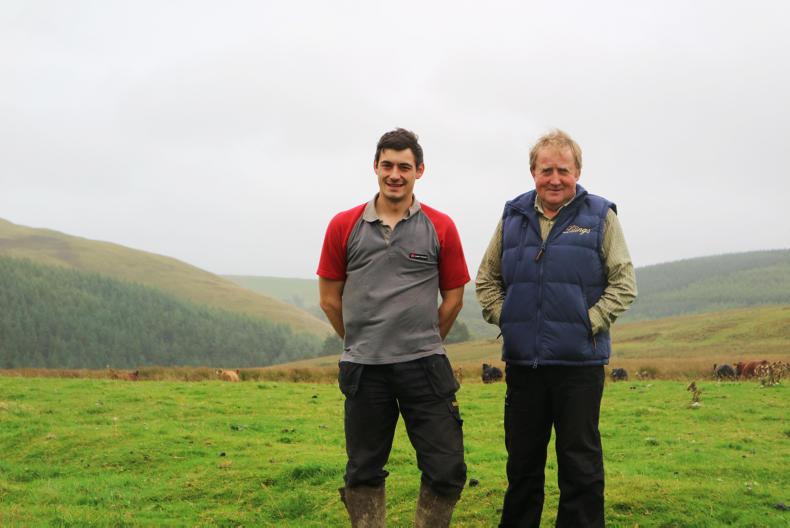




 This is a subscriber-only article
This is a subscriber-only article





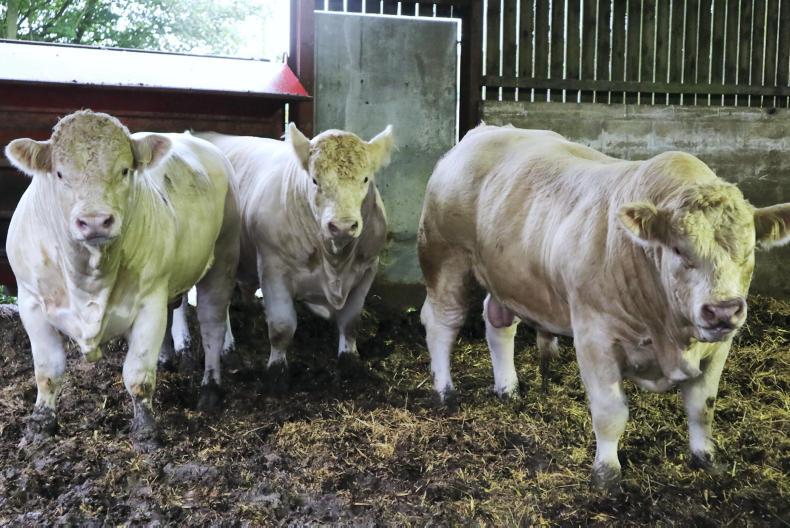
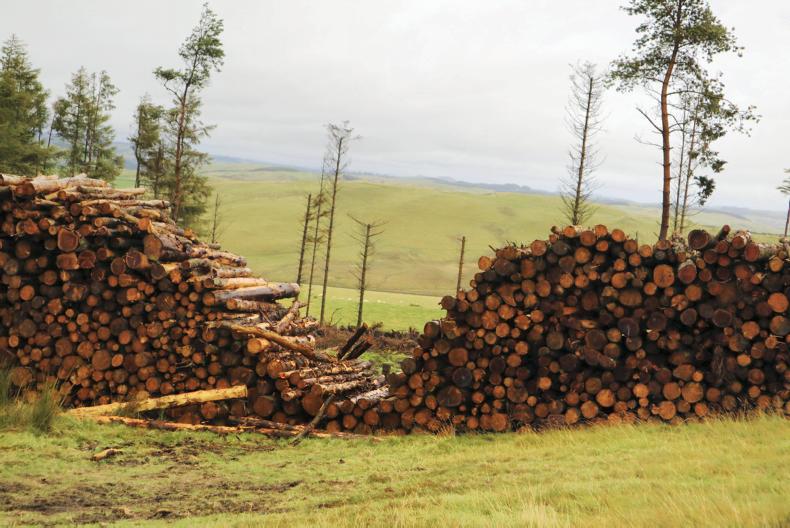

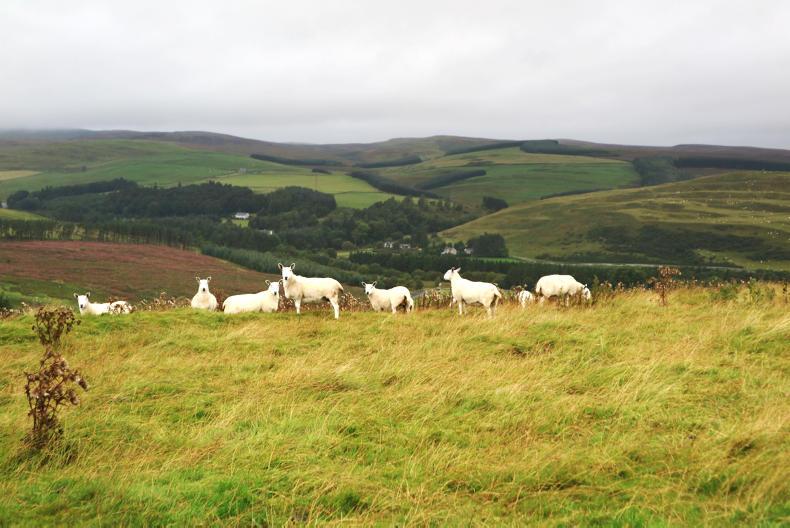
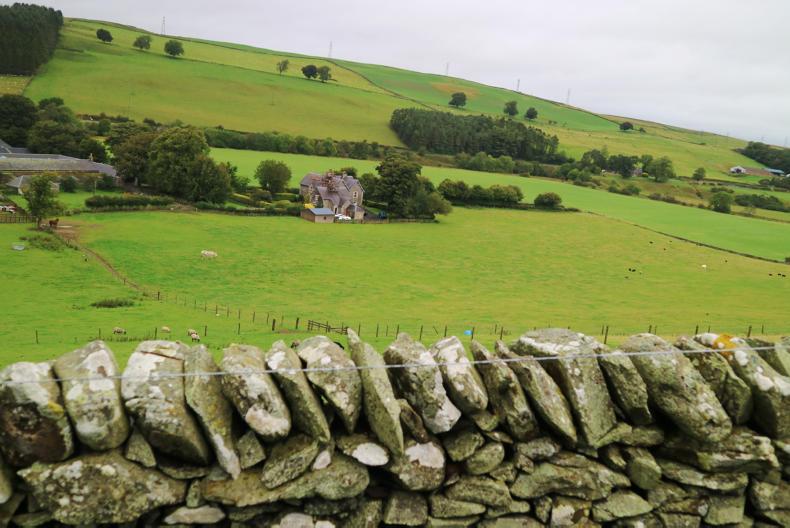
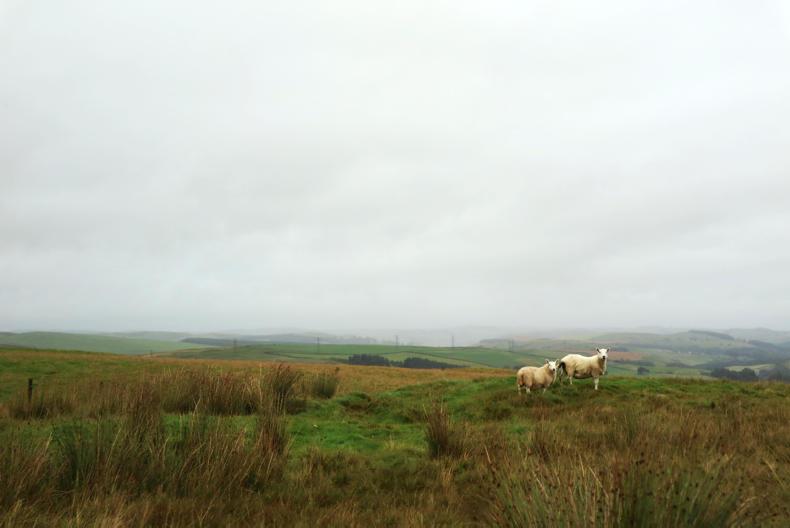






SHARING OPTIONS: